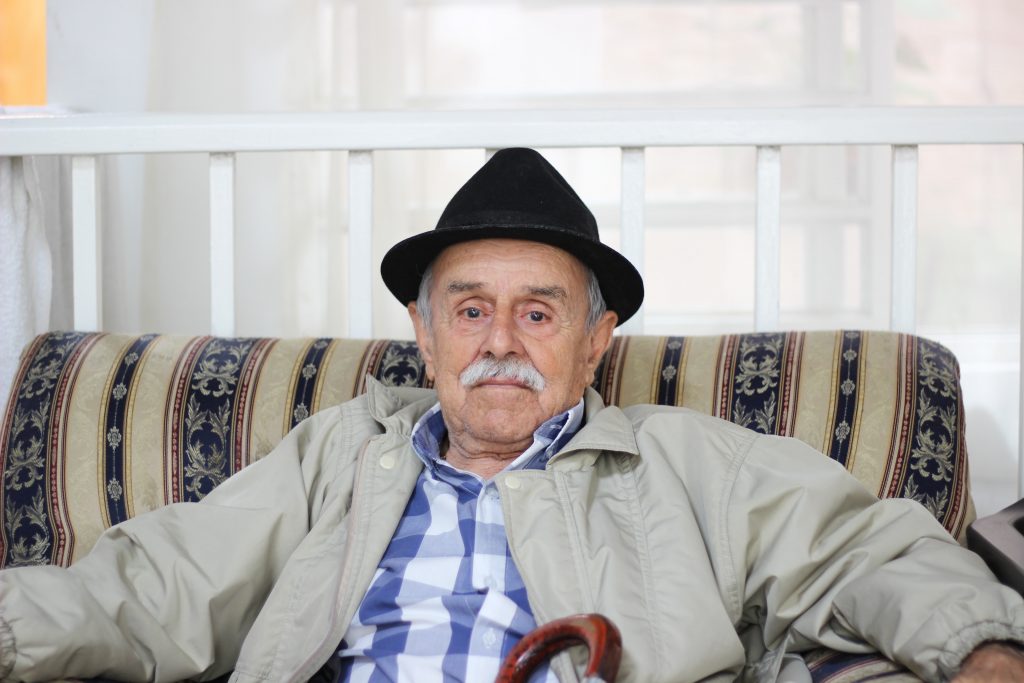This Is Why Your Uncle Might Be Dutch Posted by Sten on Aug 12, 2019 in Culture
We’ve explored before the rather curious reasons behind the uses of the word “Dutch” in different terms. From “going Dutch” to the “Dutch angle”, the lowlanders are popping up everywhere. Today, we are looking at the Dutch uncle.
For other terms in this series of “Dutch” words, check this link.
What’s my uncle got to do with the Dutch?
A Dutch uncle is probably not your tall uncle from Eindhoven. Or your klompen-wearing uncle from Gouda. It might actually be your uncle from Ireland. Or your boss – or your best friend?
“Dutch Uncle” is a term used for “a person giving firm but benevolent advice”. Wikipedia gives a slightly more elaborate definition: “a person who issues frank, harsh or severe comments and criticism to educate, encourage or admonish someone”. Ok. But why is that an uncle, and above all, why Dutch?
Like other “Dutch”-terms, the Uncle probably became Dutch during the wars between the English and the Dutch in the 17th century. For example, Dutch courage finds its origins there. The harshness and firmness are seen as quite rude and negative by the British, who are famous for saying things like “It’s not bad” when they mean the opposite. And so to refer to somebody as an “uncle” with “Dutch” origin had quite the nasty connotation.
And while this may have originated as slanderous term… it is not far from the truth.
Direct en eerlijk
The Dutch pride themselves with having flat hierarchies and being vocal about what they think. They like to be zakelijk (matter-of-fact) and direct (direct). What’s the point of talking around the point? It is just tijdsverspilling (a waste of time).
And so they will say what they think. Also to higher-ups. And it is often appreciated. The Dutch poldermodel encapsulates this flat-hierarchy, saying-what-you-think mentality quite well.
Actually, it is expected from you to be so direct about your thoughts and concerns, which is quite harsh for some cultures that are a bit less direct. But once you get used to it, I’ve heard from several non-natives, it’s quite nice to be able to give your true two-cents and it is nice to know what others truly think.
So maybe if your uncle, aunt, or whoever, is being “Dutch” again, you might also see the merit of it!
The Term in Dutch
Translating “Dutch Uncle” to Dutch becomes Nederlandse oom. It is not a term we use at all, and I doubt many Dutch people even heard about this term at all!
What is “Dutch Uncle” in your language? Have you heard the term being used before? Have you used the term? Do you have a “Dutch Uncle” in your life? Let me know in the comments below!

Build vocabulary, practice pronunciation, and more with Transparent Language Online. Available anytime, anywhere, on any device.







Comments:
Peter Simon:
Some of my experiences with the Dutch contradict this idea quite much. While the harshly defend their own turfs, my bosses rarely told me what they think, they simply didn’t lengthen my contract in the end without telling me why at one place, and while they let me go on my summer holiday saying I’ll be fully welcome back in September, and they even sent me a birthday message in August, they bent over backwards not to tell me I wasn’t expected back in September. Both were quite disappointing and disgusting occasions, especially as I hadn’t stepped on anyone’s toe while in employment with them. I have no illusions of honesty with the Dutch any more than with other nations although I’d expect no less even as a Hungarian.
Sten:
@Peter Simon Sorry to hear that, Simon!
Of course there are outliers, but in my experience, and in the experience of people I’ve talked to, it’s generally like this.
Maria:
In my country when someone offers you something the first time you say no thanks ( to be polite) but every one knows that they have to repeat the offer thenyou are expected to say ok thanks , and so on … But since I lived in the Netherlands when someone offers me something I say thanks yes or If I don’t like something I say no thanks ,at the beginning that confused my husband , when I refused something at first rate , so I explained him that my no is a ” dutch no” that means that I really mean it
Sten:
@Maria Oh that’s a great addition to this! A “Dutch no”. Yeah, I guess we got ourselves notorious for this :p